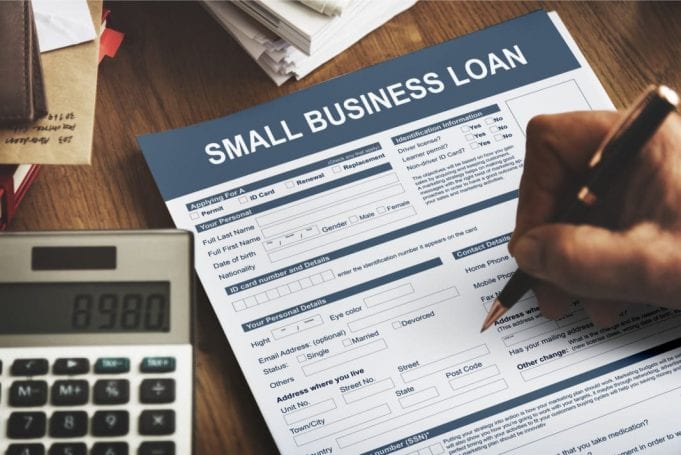Getting a small business loan is something that most prospective and current business owners think of once in a while. Reasons for wanting are varied, and options for these are many. It is challenging and confusing, especially when you do not know where to start. Here’s all you need to know about acquiring a small business loan.
1. Think carefully about why you need the business loan
Note down all the reasons that are making you seek the loan. You do this so that you can question yourself if it is important or urgent to seek financing. Is it something that can wait, be postponed, or done away with totally?
2. Are there any financing options?

With a clear idea, you can now find out who offers small business loans. These options include commercial banks, credit unions, microfinance, online lenders, and peer to peer lending sites. This knowledge is important because, should you fail to get from one lender, you can always try another one.
Commercial banks are also known as traditional banks, and they do not easily lend to small business owners or startups. The application process is rigorous and takes long to be reviewed. They require very many documents and may also ask for collateral. Even with this security, it is still not guaranteed that you may get a loan. Your credit score counts a lot, as it is thoroughly investigated. Generally, small business loan interest rates are higher in banks than anywhere else.
Credit unions are an easier option if you are a member. They charge low interest and have an easier process for loan application. You need to visit one of their branches and talk to a loan officer.
Microfinance loans are attractive to new business owners. This is because they are available for startups and have a low-interest rate. It would be best if you were a member and should have saved with them for a minimum period of not less than three months.
Online lenders tend to be more flexible and faster. They may not be interested in knowing a lot of details about your business. Your credit score does count a lot, though. Click here for more information about business loans.
Peer to peer lending sites offers much-needed mediation between borrowers and lending institutions. If you find it difficult to secure a loan directly, you can approach any of these sites, and they will identify several institutions that could be willing to lend you according to your unique case.
3. Identify the type of financing you need.

It could be a working capital loan, a small business term loan, Small Business Administration (SBA) small business loan, small business line of credit, a small business credit card, accounts receivable financing, and/or an equipment loan.
4. How is your credit score?
Getting a small business loan means going through your credit history and taking note of your credit score. No one wants to lend money to someone with a poor credit history and a low credit score. If you are unsure of your credit score, you can seek a report from any credit reporting agency.
5. Write down a detailed and convincing business plan.

This should be realistic, and it should explore all the aspects of your business. This should include the financial statements of the business, any projects that were done in the past, and how successful they turned out.
Explain what collateral you have, its current value, and type. Include a statement analyzing your projected market. Elaborate on how feasible your business is in that catchment area. Explore all the relevant experience you may have concerning the business. Do not forget to include the strategies you intend to put in place for the growth of your business.
6. Assemble all the pertinent documents.

These documents are many, and different institutions ask for a combination of distinct ones. The most common ones include your identification, your credit report, bank statements, financial statements, accounting records, and legal documents. Other documents include your business and personal tax returns.
For your financial statements and accounting records, ensure they are counter-checked by a professional accountant so that they present the right picture. This is because they are thoroughly checked, especially cash flow, income and loss, debt-to-equity ratio, gross margin, accounts payable, and accounts receivable.
The legal documents show your level of seriousness and professionalism. They indicate whether you have followed the laid down rules and are licensed to conduct business. These documents include a commercial lease, articles of incorporation, and a franchise agreement.
7. Plan on how you are going to make a presentation

If necessary, go through your documents with the accountant once again and clarify anything that is not clear to you. Ensure you have filled out the necessary small business loan application forms. These should contain true details because they are counter-checked. Any slight deviation will raise eyebrows, cause red flags, and be more scrutinized.
Once you feel confident, set up an appointment with the loans officer or credit controller of the institution you intend to borrow from. It is good to be psychologically prepared that you may or may not secure a loan. If you are denied a loan in one institution, dust yourself and move on to the next one. You may get a loan with those same documents in a different institution.
Pro tip
In conclusion, remember that startups are rarely given small business loans. If possible, borrow cash from your close relatives and friends when you are starting. Though extra financing is welcome to your business, if you can avoid it, please do. It may slow down your growth, and whenever anything goes wrong, you will have debt in your hands alongside a failed business.
On the other hand, if properly managed, a small business loan can catapult you to greatness and financial freedom. It does require strict discipline and prudent financial management. You should ensure you have proper advice from the appropriate professionals so that you run your business profitably.









